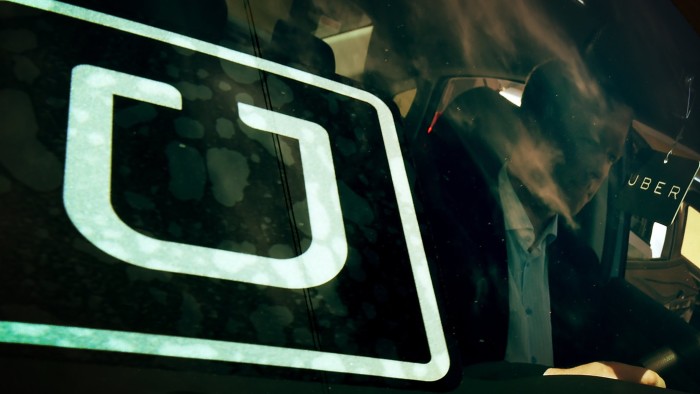Uber to tap debt markets for up to $2bn

Roula Khalaf, Editor of the FT, selects her favourite stories in this weekly newsletter.
Uber plans to raise up to $2bn in leveraged loans, as the disruptive car-hailing company builds financial firepower as it expands rapidly around the world.
The turn to debt markets is unusual because Uber already has about $9bn in cash plus $2.3bn in convertible debt, making it the best funded start-up of all time.
The size of the loan, which is being underwritten by Barclays and Morgan Stanley, was likely to be between $1bn and $2bn, according to people involved in the deal. The exact size and terms of the debt were still being settled, these people said.
Uber’s debt issue follows a $3.5bn equity investment from Saudi Arabia’s sovereign wealth fund earlier this month, a deal that marked the largest single investment ever in a private company.
The new loan and the recent funding could help Uber delay the need for a public offering, which has historically been the route by which start-ups raised capital after growing to a certain point.
Uber has put that model on hold by raising money privately on an unprecedented scale. Travis Kalanick, chief executive, plans to take the company public “as late as humanly possible”, indicating at a conference in Germany last week that an initial public offering could be between one and 10 years away.
The new debt will also come at a time when Uber’s powerful Chinese rival, Didi Chuxing, is out talking to investors as part of its own fundraising round. Didi recently raised $1bn from Apple and $600m from China Life, and its president has vowed that it will out-raise Uber’s $3.5bn Saudi deal during its round.
Uber has a history of competitive tactics to disrupt rivals’ fundraising efforts. At one point Uber even required potential investors to sign a pledge not to invest in US rival Lyft, although that agreement has since expired.
Founded six years ago, Uber is based in San Francisco and operates in 68 countries. It has been pouring money into China and India in particular, both markets where it is the underdog behind strong local competitors.
Issuing large amounts of debt is unusual for a private start-up, but it has the advantage of not diluting shareholders. The leveraged loan market has contracted this year amid broader market turmoil, and leveraged loans are down 19 per cent in the year-to-date compared with the same period a year ago.
News of Uber’s debt issue was first reported by the Wall Street Journal.
Uber, Morgan Stanley and Barclays declined to comment.
Additional reporting by Eric Platt and Guy Chazan
Comments